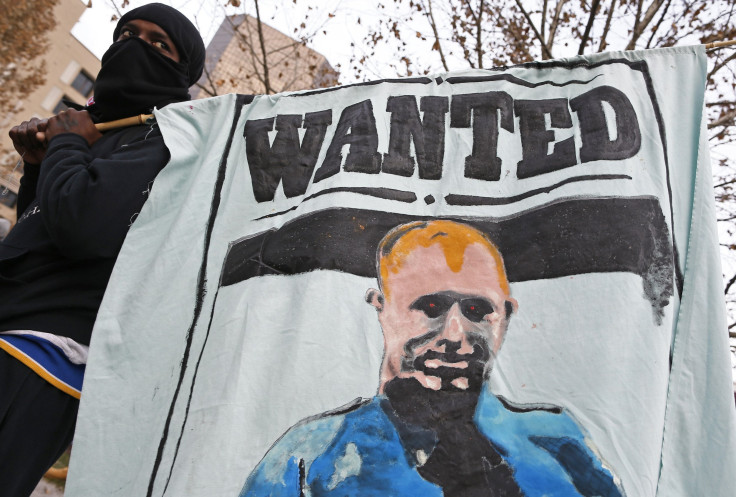Ferguson Police Lawsuit: Justice Department Scrutiny Sends Message To Law Enforcement, Civil Rights Leaders Say

Outgoing U.S. Attorney General Eric Holder this week hinted that the Justice Department could join more than a dozen St. Louis, Missouri area residents in a lawsuit against local law enforcement agencies for racially discriminatory practices used by officers. While federal officials are unlikely to bring civil rights charges against former Ferguson police Officer Darren Wilson for the shooting death of Michael Brown last August, a lawsuit against the police department could spur reforms in policing nationwide, some civil rights leaders have said.
In Ferguson, changes to use of force guidelines and to the practice of arresting and jailing poor, minority residents for unpaid municipal fines could have ripple effects in minority communities where trust in police has been historically low, said the Rev. Al Sharpton, leader of the civil rights group National Action Network. “While we feel that this does not answer the specific violations of the civil rights of Michael Brown being violated, it gives a strong national message to police departments around the country,” Sharpton said in a statement released Wednesday night.
The subject of race and policing has dominated an intense national discussion about discriminatory tactics by law enforcement agencies. Last week, FBI director James Comey signaled changes in how minority communities are policed were on the way. The changes could start with the training of officers who make “lazy mental shortcuts” when they encounter racial minorities. “We need to come to grips with the fact that this behavior complicates the relationship between police and the communities they serve,” Comey said.
In Missouri, where law enforcement officials faced national scrutiny in the Brown case, some changes were already underway. This month, the Ferguson Police Department was testing a “less lethal” law enforcement tool that could prevent deadly outcomes in split-second uses of force. Al Eickhoff, the assistant chief of the department, said the department would field test a device called “The Alternative” if police force trainers were happy with its function.
© Copyright IBTimes 2024. All rights reserved.





















